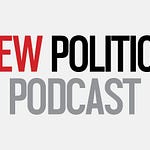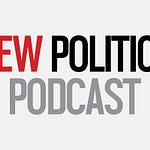In this week’s episode of New Politics, we explore the recent parliamentary session where the Prime Minister informed the Labor Caucus that they are “crafting the offer for a second term.” This statement has been widely interpreted as a preparatory move for an election, though this is unlikely before the Queensland state election in October. Redistribution issues further complicate the timing, but we think the possible election dates are either November or April 2025.
Amidst this electoral anticipation, pressing issues from the current term still demand resolution. Economic management remains a concern, and other ongoing issues include housing, the “future made in Australia” program, domestic violence, and energy pricing. These are long-term challenges that require continuous management rather than immediate solutions.
New Politics is a reader-supported publication. To receive new posts and support our work, please consider becoming a free or paid subscriber.
Immigration continued to be as a contentious issue for the government, particularly concerning the deportation of non-citizens who have committed crimes – Peter Dutton is expected to capitalise on this topic – as conservatives usually do – a natural territory for him, leading up to the next election.
For the Labor government, some supporters on the left believe that a second term will allow for the implementation of more radical social policies. However, there is no clear evidence of what Labor intends to pursue in a potential second term. Historically, second terms of Labor governments have varied in productivity and political stability, as seen in comparisons between the Hawke, Whitlam, and Gillard governments. Speculations about a second term under Prime Minister Albanese suggest it might mirror the first term in its cautious and steady approach.
Racism has re-entered the national debate following comments by ABC journalist Laura Tingle at the Sydney Writers Festival. Her remarks about Australia’s racist tendencies sparked outrage from News Corporation, demanding her reprimand, as well as their usual calls to defund the ABC. We examine the broader context of racism in Australia, from historical policies to contemporary issues, and the media’s role in perpetuating or challenging these narratives.
The ABC fails to protect its journalists from external attacks – Stan Grant, Yasmin Abdel-Magied, and Antoinette Latouf are prime examples of this – but Laura Tingle, as a senior journalist and ABC board member, represents a tougher challenge for removal. Will she stay, or will she go?
The media’s influence on politics is another focal point, with Sky News and News Corporation acting as political activists for the Liberal Party. The Prime Minister Albanese’s more detailed recognition of media issues in the Democracy Sausage podcast highlights this point, though his reluctance to act remains puzzling.
Finally, we cover the Australian Greens’ motion to debate the recognition of the state of Palestine, which was swiftly defeated. We also address the duplicity of political statements on Palestine and the broader implications for Australian foreign policy. The reluctance to take a stand on Palestine is linked to fear of backlash from pro-Israel lobby groups, a dynamic mirrored in UK and US politics.
This is a public episode. If you’d like to discuss this with other subscribers or get access to bonus episodes, visit newpolitics.substack.com/subscribe













Share this post